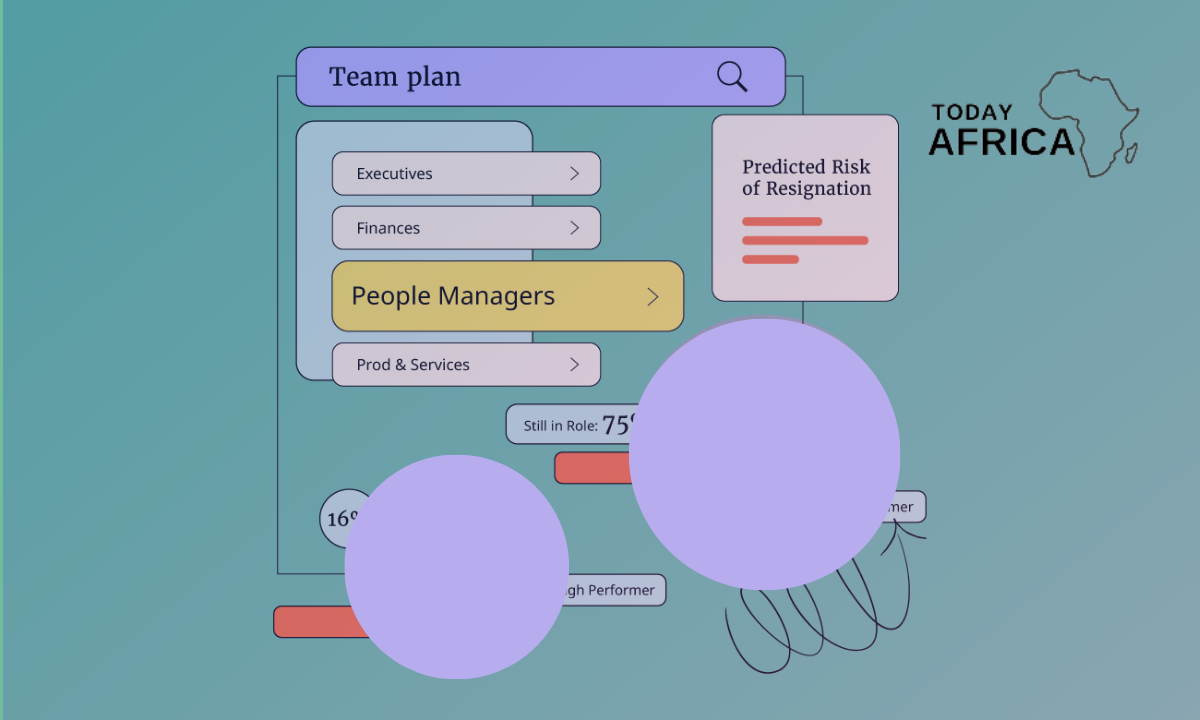Managing finances is one of the most critical aspects of running a startup. For new entrepreneurs, keeping track of income, expenses, taxes, and overall financial health can be daunting without the right tools.
That’s where accounting software comes in. With the right accounting software, startups can streamline their financial processes, save time, and reduce errors, helping them focus on growth.
In this blog post, we’ll discuss accounting software for startups, features to look for, the benefits of using accounting software, and a roundup of some of the best options available today.
Why Accounting Software is Essential for Startups
Startups typically operate on tight budgets, limited resources, and lean teams. These challenges make it essential to streamline operations wherever possible, especially in finance. Manual bookkeeping is prone to errors, time-consuming, and inefficient. Mistakes in financial management can lead to inaccurate financial reporting, tax penalties, or even business failure.
Accounting software helps startups in several ways:
- Automating financial processes: Automating tasks like invoicing, payroll, and tax filing saves time and reduces human error.
- Providing real-time financial insights: Accounting software generates real-time reports, giving business owners a clear view of their financial health and helping them make data-driven decisions.
- Tax compliance: With the right tools, startups can manage tax-related tasks like VAT, GST, and payroll taxes easily, ensuring compliance with local regulations.
- Budgeting and forecasting: Accounting software allows startups to track their expenses, create budgets, and forecast their cash flow, making financial planning easier.
Key Features of Accounting Software for Startups
When choosing accounting software for your startup, it’s important to consider which features are essential for your business. Here’s a list of key features to look out for:
1. Invoicing and billing
Invoicing is the backbone of any business that deals with clients and customers. Accounting software should offer customizable invoicing templates, automatic payment reminders, and the ability to track unpaid invoices.
2. Expense tracking
Tracking business expenses ensures that you know where your money is going. Good accounting software should allow you to categorize expenses, upload receipts, and manage reimbursements.
3. Bank reconciliation
Reconciliation ensures that your financial records align with your bank statements. The software should support automatic bank reconciliation by linking your bank account with the software.
4. Financial reporting
Generating financial reports, such as income statements, balance sheets, and cash flow reports, is crucial for understanding the financial performance of your startup. Look for software that offers customizable, real-time reporting features.
5. Tax preparation
Tax season can be stressful, especially for startups. The right accounting software will help you prepare for taxes by tracking tax liabilities, generating tax forms, and ensuring compliance with tax regulations.
6. Payroll management
Some accounting software includes payroll management features or integrations with payroll providers. This feature can help manage employee salaries, bonuses, and tax withholdings efficiently.
7. Multi-currency support
If your startup operates internationally or deals with multiple currencies, multi-currency support will make financial transactions easier to manage.
8. Integration with other tools
The best accounting software integrates with other tools like CRM systems, payment gateways, and project management software, creating a seamless workflow.
9. Cloud-based access
Cloud-based accounting software allows you to access your financial data from anywhere, making it ideal for startups with remote teams or multiple locations.
10. Scalability
Your startup is likely to grow, so you need accounting software that can scale with your business. Look for software that offers scalable pricing plans or modules to expand as your business grows.
Benefits of Using Accounting Software
Now that we’ve covered the key features, let’s look at the specific benefits that accounting software brings to startups:

1. Saves time and reduces manual work
Automation of tasks such as invoicing, expense tracking, and bank reconciliation can save hours of manual work. This gives startups more time to focus on core business activities.
2. Improves accuracy
Manual data entry is prone to errors, which can lead to financial discrepancies. Accounting software reduces human error and ensures data accuracy, especially when linked directly to bank accounts and payment systems.
3. Enhances financial visibility
With real-time reporting, startups can monitor their financial health at any time. This helps founders make informed decisions, optimize cash flow, and detect any financial issues early.
4. Facilitates compliance
Tax rules and regulations vary by region and are often complex. Accounting software simplifies compliance by automating tax calculations and ensuring proper documentation for audits.
5. Supports growth
As your startup grows, accounting software can scale to meet new demands, such as handling more transactions, customers, and financial reports.
6. Cost-effective
Many accounting software options are affordable, and some even offer free tiers for startups. By investing in the right tools early on, startups can avoid costly financial errors and mismanagement.
Read Also: 91 Remote Team Management Software [Features & Benefits]
Top Accounting Software for Startups in Africa
Here’s a roundup of the top accounting software options available for startups, each with its unique features and pricing models:
1. QuickBooks
QuickBooks is one of the most widely used accounting software solutions, particularly popular among small businesses and startups. It offers a range of features, including invoicing, expense tracking, payroll, and tax preparation.
Key features
- Automatic bank reconciliation
- Customizable invoices
- Advanced financial reporting
- Tax preparation and compliance
- Integration with over 650 business apps
Pricing: Starts at $15/month
Best for: Startups that need a comprehensive solution with scalable features.
2. Xero
Xero is a cloud-based accounting software designed for small and growing businesses. Its intuitive interface and strong integration capabilities make it a favorite among startups.
Key features
- Simple invoicing and quotes
- Real-time cash flow monitoring
- Multi-currency support
- Bank reconciliation
- Inventory management
Pricing: Starts at $13/month
Best For: Startups that require multi-currency support and strong app integrations.
3. FreshBooks
FreshBooks is known for its easy-to-use interface and is especially popular with freelancers and small business owners. It simplifies invoicing, expense tracking, and time management, making it ideal for service-based startups.
Key features
- Automated invoicing
- Expense and time tracking
- Project management
- Financial reporting and tax summaries
- Integration with various business tools
Pricing: Starts at $17/month
Best For: Startups in service-based industries that need invoicing and time tracking features.
4. Wave
Wave offers free accounting software with robust features, making it perfect for startups on a budget. It provides all the basic accounting functionalities you need without the hefty price tag.
Key features
- Free invoicing and expense tracking
- Bank account integration
- Payroll services (for an additional fee)
- Financial reports and tax tracking
Pricing: Free (additional costs for payroll and premium support)
Best For: Startups looking for free accounting software with basic features.
5. Zoho Books
Zoho Books is part of the Zoho ecosystem, which includes CRM, project management, and other business tools. It is a great option for startups already using other Zoho products.
Key features
- Automated workflows
- Bank reconciliation
- Customizable invoices
- Tax compliance
- Integration with other Zoho apps
Pricing: Starts at $15/month
Best For: Startups that already use Zoho’s suite of business tools.
6. Sage Business Cloud Accounting
Sage Business Cloud Accounting offers powerful accounting features with the flexibility of cloud-based access. It is tailored for small businesses and startups, with modules that can be added as your business grows.
Key features
- Easy invoicing and quote creation
- Cash flow management
- VAT compliance
- Payroll integration
- Multi-user support
Pricing: Starts at $10/month
Best For: Startups that need a scalable solution with easy payroll integration.
7. Kashoo
Kashoo is a simple and user-friendly accounting software that caters to small businesses and startups. It’s designed to help entrepreneurs manage their bookkeeping needs with minimal complexity. Kashoo offers a straightforward approach to invoicing, expense tracking, and tax filing, making it ideal for startups that need a no-frills accounting solution.
Key features
- Automatic bank reconciliation
- Simple and intuitive dashboard
- Customizable, professional invoicing
- Multi-currency support
- Built-in tax tracking and preparation tools
- Real-time reporting
Pricing: Starts at $20/month
Best For: Startups looking for a simple, user-friendly solution for basic accounting tasks.

8. Gusto
While Gusto is primarily known for its payroll management features, it also offers powerful accounting capabilities, especially when integrated with other tools like QuickBooks and Xero. Gusto simplifies payroll, benefits, and HR tasks, making it a great solution for startups with growing teams.
Key features
- Full-service payroll management
- Benefits and employee onboarding tools
- Automated tax filing and compliance
- Time tracking and project management integrations
- Integration with accounting software like QuickBooks and Xero
Pricing: Starts at $40/month plus $6/month per employee
Best For: Startups that need robust payroll and HR features along with accounting functionality.
Read Also: Top 67 Remote Team Software For Your Remote Teams
9. ZipBooks
ZipBooks is a cloud-based accounting software designed with simplicity and efficiency in mind. It provides basic accounting features for free, making it an attractive choice for startups looking to manage their finances without incurring high costs. ZipBooks includes invoicing, expense tracking, and reporting features, with the option to upgrade for more advanced tools.
Key features
- Free basic accounting features
- Intelligent insights and reporting
- Automated invoicing and payments
- Bank reconciliation and expense tracking
- Financial health score to measure business performance
Pricing: Free for basic features; paid plans start at $15/month
Best For: Startups looking for a free or low-cost accounting software option with essential features.
10. FreeAgent
FreeAgent is an accounting software specifically designed for freelancers and small businesses. Its user-friendly interface makes managing financial tasks easy, and it provides tools to handle everything from invoicing to tax preparation. FreeAgent is especially useful for startups that bill clients by the hour or project.
Key features
- Easy project-based invoicing and time tracking
- Expense management and receipt capture
- Automated tax calculations and filing
- Multi-currency invoicing and expense tracking
- Real-time dashboard for financial performance
Pricing: Starts at $10/month for the first 6 months, then $20/month
Best For: Startups and freelancers who need project-based billing and expense tracking.
11. OneUp
OneUp is a versatile accounting software that offers advanced automation features designed to streamline financial processes for startups. It includes inventory management, which makes it ideal for startups in retail or those that sell physical products. OneUp uses machine learning to automate bank reconciliation and categorize transactions, helping business owners save time.
Key features
- Automatic bank reconciliation using machine learning
- Advanced inventory management
- CRM tools for managing customer relationships
- Financial reporting and forecasting
- Multi-user support with role-based access
Pricing: Starts at $9/month
Best For: Startups that sell physical products and need inventory management alongside accounting features.
12. AccountEdge Pro
AccountEdge Pro is a desktop accounting software with robust features, making it an excellent option for startups that prefer a more traditional accounting tool. It offers powerful financial management tools, including payroll, inventory, and project tracking. While it is a desktop solution, it also has cloud-connected services for remote access.
Key features
- Desktop-based with cloud access options
- Payroll management and employee tracking
- Inventory management with purchasing and sales orders
- Customizable invoices and financial reports
- Multi-currency support
Pricing: One-time fee starting at $399
Best For: Startups that prefer desktop-based software with powerful, offline accounting features.
13. Patriot Accounting
Patriot Accounting is an affordable and straightforward accounting software built for small businesses and startups. Its easy-to-navigate interface and low pricing make it a solid choice for startups on a budget. It offers basic accounting features such as invoicing, expense tracking, and bank reconciliation, with additional services available for payroll.
Key features
- Customizable invoicing and payments
- Easy expense tracking and reporting
- Automatic bank reconciliation
- Time and project tracking (with upgrades)
- Payroll integration
Pricing: Starts at $20/month
Best For: Startups seeking an affordable, no-frills accounting solution with optional payroll features.
14. Bonsai
Bonsai is an all-in-one business management platform designed for freelancers, startups, and small businesses. While it is more widely known for its contract management and client relationship features, Bonsai also offers simple accounting tools. It’s perfect for service-based startups and freelancers who want to keep their project management and accounting in one place.
Key features
- Time tracking and project management
- Customizable invoicing and payments
- Built-in proposal and contract tools
- Expense tracking and reporting
- Tax preparation features for freelancers
Pricing: Starts at $24/month
Best For: Freelancers and service-based startups that want to integrate project management and accounting in one platform.

15. KashFlow
KashFlow is UK-based accounting software that provides a wide range of features for startups and small businesses. It’s especially useful for startups that need to manage VAT, payroll, and financial reporting in the UK. KashFlow’s interface is user-friendly, and its range of automation tools helps startups save time on bookkeeping and tax management.
Key features
- VAT management and reporting
- Payroll integration for seamless employee payments
- Customizable invoices and automated reminders
- Multi-currency support
- Detailed financial reporting
Pricing: Starts at £10/month (approx. $13/month)
Best For: African UK-based startups that need VAT and payroll features integrated with their accounting software.
Read Also: Angel Investor Software: What is it, Features, & Benefits
How to Choose the Right Accounting Software for Your Startup
Selecting the right accounting software can be overwhelming, especially with so many options available. Here are a few tips to help you choose the best solution for your startup:
1. Assess your needs
Consider the specific financial tasks your startup needs help with, such as invoicing, expense tracking, or payroll. Choose software that meets your current needs and can grow with your business.
2. Consider your budget
While some accounting software can be expensive, there are free or affordable options available. Evaluate your budget and decide what you’re willing to spend on accounting software.
3. Ease of use
The software should have a user-friendly interface, especially if you don’t have a background in accounting. Look for tools with intuitive dashboards, simple navigation, and easy setup processes.
4. Integration capabilities
If you already use other business tools (e.g., CRM, payment gateways), ensure the accounting software can integrate with them seamlessly to avoid having to switch between platforms constantly.
5. Check for scalability
As your business grows, you may need more advanced accounting features. Choose a software solution that offers additional modules or pricing plans that align with your growth.
6. Customer support
Choose a solution with reliable customer support, especially if you’re not tech-savvy. Check reviews to see if the software provider offers timely and helpful support.
Conclusion
Accounting software is an indispensable tool for startups. From streamlining financial processes to ensuring compliance and providing real-time insights, the right software can significantly improve your business’s financial health. When choosing accounting software, focus on features that align with your current needs and anticipate future growth. With the right solution in place, you’ll have more time to focus on scaling your startup, knowing that your finances are in good hands.
Comment and follow us on social media for more tips:
- Facebook: Today Africa
- Instagram: Today Africa
- Twitter: Today Africa
- LinkedIn: Today Africa
- YouTube: Today Africa Studio
















